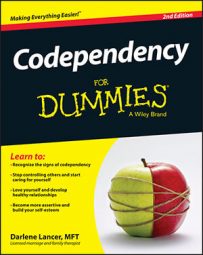Individual boundaries
When boundaries are too rigid, family members are likely disengaged emotionally and physically. There may be no feeling of closeness, nor affection showed. As adults, siblings may be emotionally distant, and families may not often celebrate together.On the other hand, when boundaries are nonexistent or enmeshed, family members may feel as though they have no right to set boundaries. They may gossip and overreact to each other, give unwanted advice, and invade each other's personal space.
In the same vein, some controlling parents may disrespect their children's decisions and control their hobbies, school courses, friends, and personal dress styles. Parents may also invade boundaries by prying, reading their children's mail, questioning their friends, and ransacking or taking their belongings without permission.
One likely explanation for this behavior is that some parents resist their children's urge to separate because they want to be needed. They see natural independence as disloyalty and abandonment. Children, on the other hand, may either rebel or feel guilty when they try to set boundaries with their controlling parents and with others as an adult.
Your experiences with individual boundaries
As an exercise, describe the boundaries in your family growing up in the following areas:-
Money
-
Your personal belongings
-
Physical touching and showing affection
-
Sex and nudity
-
Emotional — respect for your feelings
-
Mental — respect for your thoughts and opinions
Generational boundaries
There are also generational boundaries between parents and children, which can be violated if children are put in an adult role. This often happens when a parent becomes overly close with their child and uses them as a companion, as a confidante to discuss their parental relationship or personal problems, or as an ally against the other parent.In this case, the child functions as an emotional surrogate for the lack of intimacy between the parents and/or as an ally or pawn in their power struggles. After a divorce, generational boundaries are often disrespected when one parent uses a child to convey messages to the other parent.
Generational boundaries are also crossed when a child takes over parental responsibilities for an irresponsible or emotionally or physically absent parent. This can happen in single-parent families or if one parent is ill, in the military, or an addict. Some children as young as 5 are left to make their own meals. One child may assume the role of “little mother” or “little man” and take care of younger siblings or a needy parent.
This is how many codependents learn to become over-functioning adults and caretakers. Some receive praise for doing so, and their role becomes part of their personality as adults.
Your experiences with generational boundaries?
Crossing generational boundaries is psychologically damaging. If this happened to you, you likely had to repress your needs and feelings in order to adopt an unnatural, age-inappropriate persona (be “a little adult”) to accommodate the needs of your parent. This may have separated you from your authentic child-self.Think about boundaries between generations:
-
Did you have to perform adult tasks or assume adult responsibilities?
-
Did a parent inappropriately confide with you?
-
Did a parent ask you to talk to your other parent for him or her?
-
Did you believe you had a special relationship with a parent who excluded your other parent?
-
How did you feel in each of these situations?

